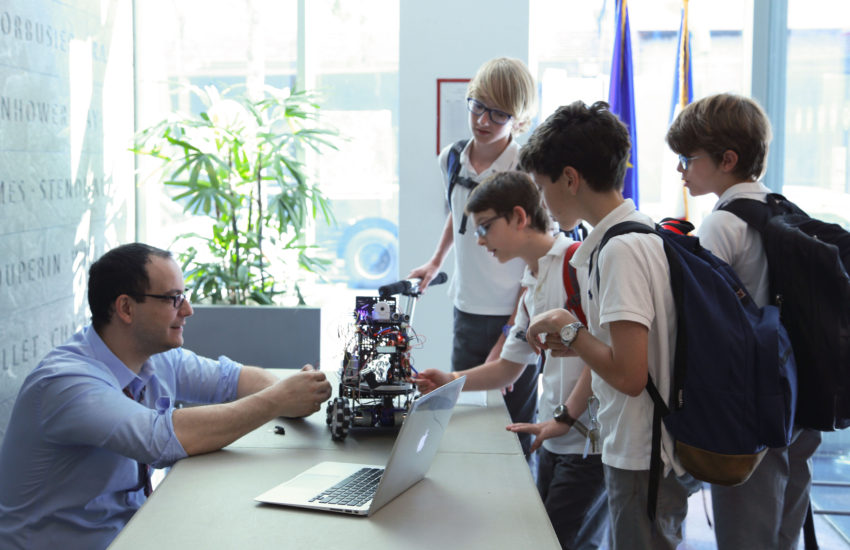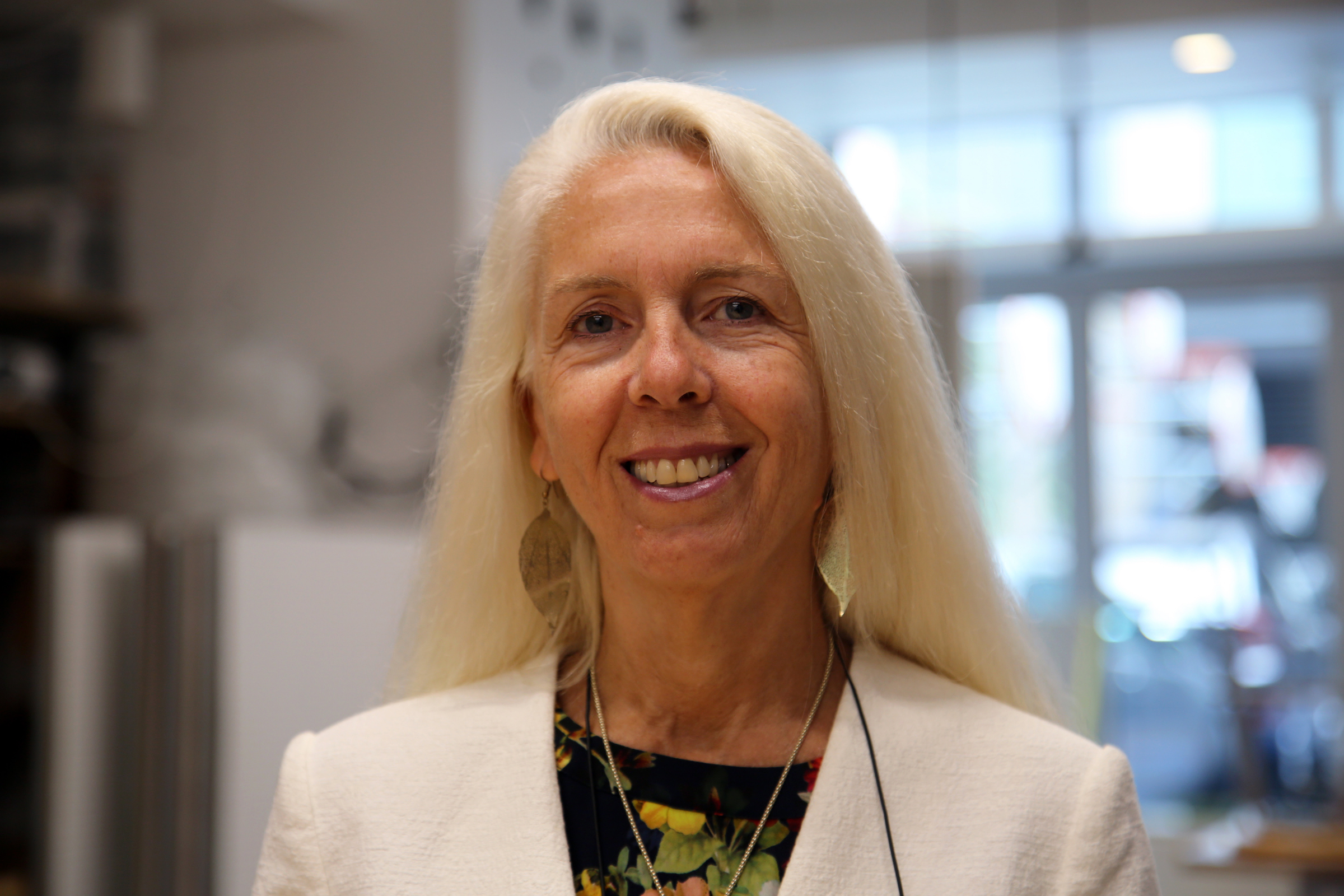In mid-October at the Lycée Français de New York, we were fortunate to be in the presence of a real “live” ROBOT—a humanoid machine with memory and language functions—as well as a panel of highly knowledgeable speakers, hosted by our Cultural Center and called, “Artificial Intelligence and the Jobs of Tomorrow.”
Artificial Intelligence is already taking over many aspects of life as we know it, as are automation and robotics. For example, some recycling companies are now using robots to sort garbage (a job most humans would prefer not to do). Support for this type of “intelligence” allows for humans to spend time on higher-level thinking tasks like problem-solving in situations where complexity is the norm.
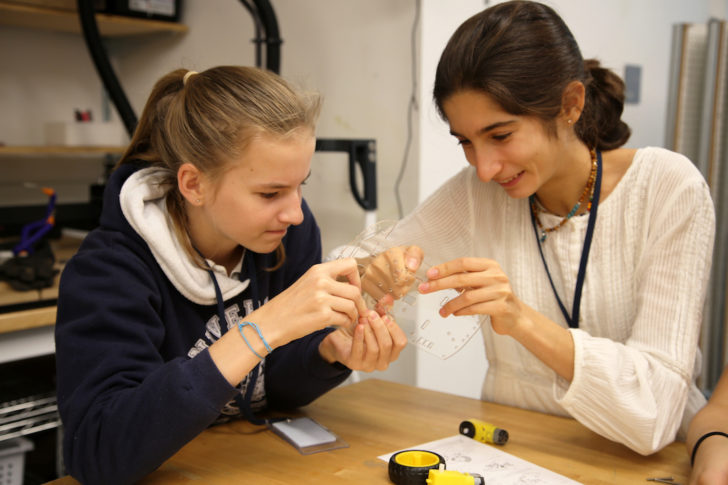
One of our panelists, the renowned neuroscientist Dr. Rafael Yuste of Columbia University, pointed out that we do not have a clear scientific definition or explanation for “human” intelligence, so “artificial” intelligence may be a misnomer. It might be more accurate to say “automated” intelligence, or “algorithmic” intelligence. One thing we know for certain is that this field is replacing humans in areas like data collection, data processing and the extremely rapid dissemination of information. Algorithms are now responsible for many aspects of decision-making (small, large, conscious, and unconscious) in our daily lives and jobs.
Artificial Intelligence is also shaping our consumption habits. As anyone who ever bought anything online will know, a daily barrage of semi-related offers can start pouring into your inbox if you do not block them. Social media platforms like Facebook present us with the news stories it thinks we want to read (a computer programming decision we now know has the effect of siloing communities and even influencing elections). In short: Artificial Intelligence is a powerful tool, which can do amazing things. However, in a data-rich world, we must be judicious and creative in how we approach the challenges of how this information is being used.
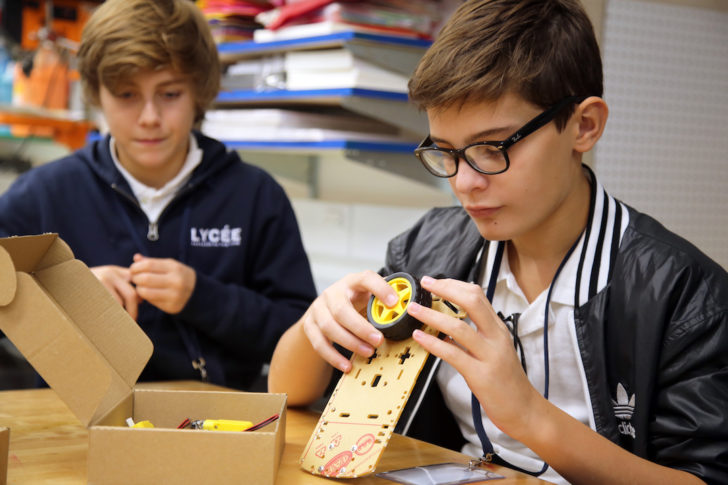
In education we are preparing students for the future, and therefore, we must prepare them for a world where technology plays a significant and always-evolving role. For this reason, we invited the robot BINA48, and BINA’s guardian, Bruce Duncan from the Terasem Movement Foundation, to visit the Lycée and interact with students, parents and teachers. We aim to provide the resources our students will need to become the discerning citizens of tomorrow, who use information carefully and ethically. We will accomplish this by fostering philosophical thinking, empathy and curiosity—in addition to technology classes.
While our tech and computer science curriculums are robust, it is also important to note our pedagogical emphasis on “digital citizenship.” As our more advanced students delve into fields like game development, cryptography, Javascript, writing algorithms, persuasive technology, CAD design, multimedia storytelling, and even virtual reality, we must also prompt them to dig deeper. Balance is what’s important. For example, this year’s Parcours on Artificial Intelligence—co-led by our US-educated computer science teacher, Portia Morrell, and French-educated philosophy teacher, Elfège Leylavergne—is a particularly good example. In the parcours, students are exploring the fundamentals of AI and robotics, as well as examining the ethical implications of AI on society.
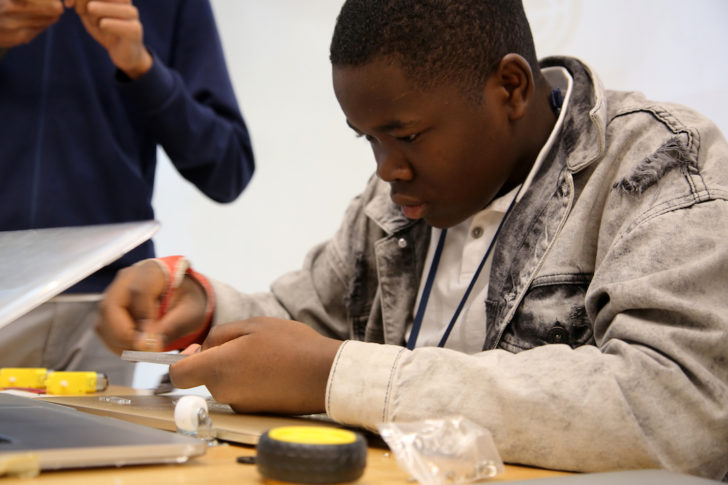
As a school leader, I believe profoundly that Artificial Intelligence will not be able to replace creativity or compassion in our children. I was reassured in this conviction by another of our guest panelists, the leadership and business management expert Brigette Hyacinth, who spoke eloquently of the increasing importance of “human” skills, like creative inquiry and emotional intelligence, in the workplace of the future. It’s clear that schools will continue to serve an important role in society in these specific areas.
After BINA48’s visit to the Lycée, and after hearing the lively discussion she inspired in our Epistemology Club students, I am more certain than ever that educational institutions should balance curricular innovation in technology with a sustained focus on ethics across the humanities, science, literature, philosophy, and the arts. They must cultivate young people in the areas of creativity and problem-solving—in ethical decision-making, and in areas related to caring for our world and our humanity. We must expose our students to case studies that use data responsibly and irresponsibly, so they can see how important human discerning is. In this way, our students will enter the world well-rounded and best-prepared for the jobs of tomorrow.
Watch the panel in its entirety here:
About the Author :
In August 2018, Audrey Peverelli joined the Lycée Français de New York as the eighth head of school in the institution’s 80+ year history. She is a quadrilingual international educator par excellence, with a 30-year career as teacher, director and founder of bilingual schools around the world, including in France, Switzerland, Venezuela and Brazil.

